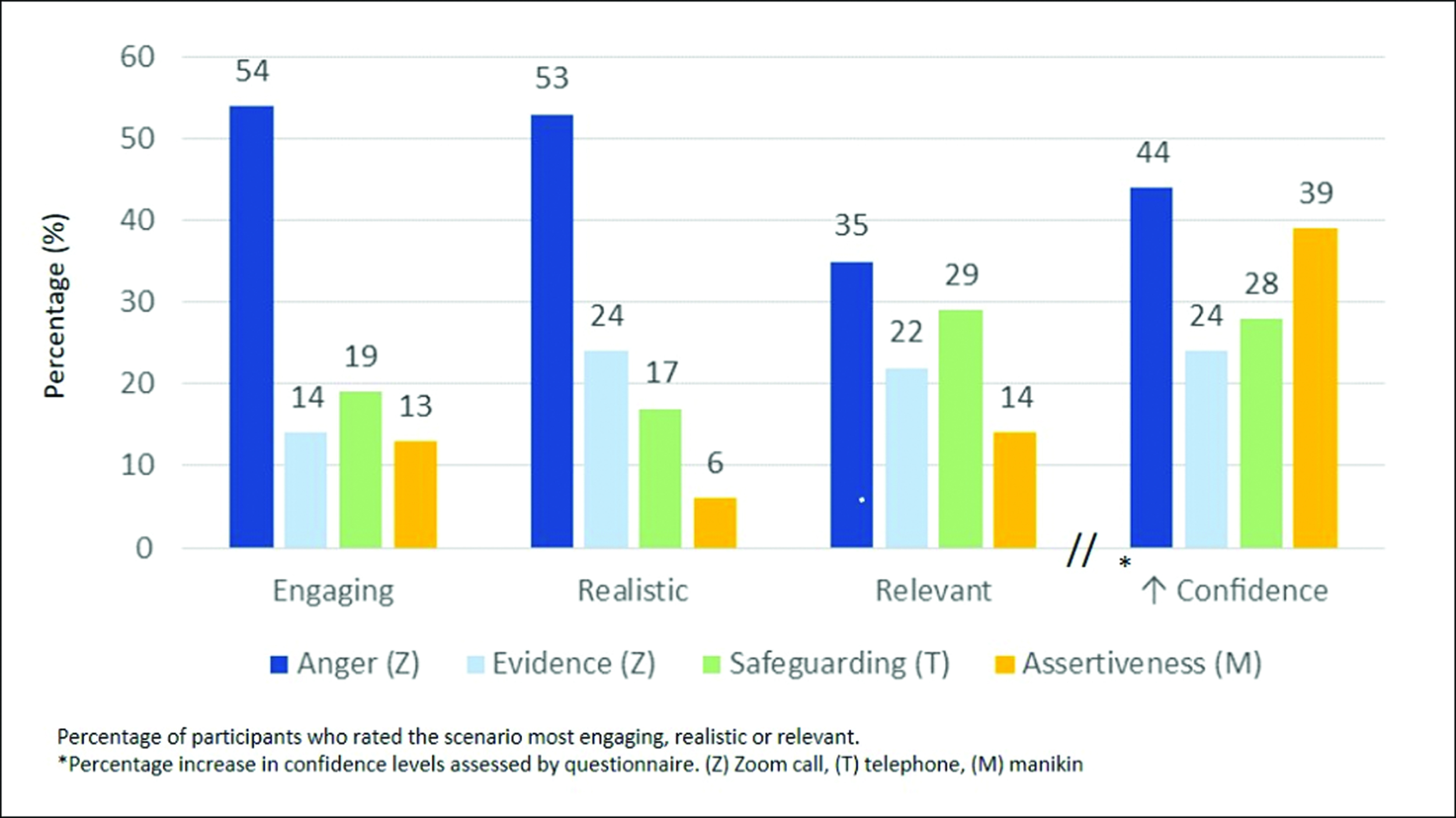
FY2 doctors in Greater Glasgow and Clyde (GGC) participate in simulation-based learning [1] to improve communication skills in difficult consultations. COVID-19 pandemic restrictions from 2020 – 2022 meant actors could not be present in person for this. Scenarios were therefore adapted to run as remote consultations - two were conducted using Zoom video calls and one by telephone with professional actors, and one ward-based manikin scenario with faculty as actors. We compared the effectiveness of the session, and of each scenario, in improving confidence in communication.
Questionnaires were completed before and after simulation. Confidence levels were assessed using a Likert Scale (1 – 5) for each scenario. Participants were also asked to rank each scenario (1 – 4) for engagement, realism and relevance to practice at the end of the session, and for which of the three Intended Learning Objectives (ILOs) for each scenario they had gained most information.
Over 10 days, 126 FY2s (6 - 8 per group) and 23 Faculty members participated. 92 completed questionnaires were obtained. ‘Take Forward Messages’ (TFM) from scenario debriefs from 12 groups were correlated with the ILOs.
Overall, there was a significant improvement in confidence in dealing with difficult communication scenarios after the session; (mean ± SEM) score pre 2.87 ± 0.11, post 3.69 ± 0.08, p < 0.01. These values did not differ significantly from 2019 when actors were present in person.
When asked to rank which scenario was most effective in different aspects, the case on how to deal with an angry patient (Zoom video call) performed best overall (Figure 1-A83). The manikin-based scenario was lowest rated, but confidence in being ‘assertive under pressure’, one of its ILOs, did improve by 44% from baseline. Confidence levels improved to a lesser degree in the other scenarios on evidence-based medicine (Zoom) and safeguarding a vulnerable adult (telephone). The ILOs participants rated best achieved best by the session were ‘Managing Confrontation and Anger’ (69%) and ‘Assertiveness under Pressure’ (52%). These ILOs were also the most frequently mentioned in TFMs, 100% (12/12) and 92% (11/12), respectively. All other ILOs were mentioned < 50 % of the time in both participant questionnaires and TFMs.


Zoom and telephone consultations, and manikin-based scenarios can be used to provide effective simulation sessions to improve communication skills. Perception of scenario quality does not always correlate with success in achieving the learning objectives.
Authors confirm that all relevant ethical standards for research conduct and dissemination have been met. The submitting author confirms that relevant ethical approval was granted, if applicable.
1. Crichton L, Fisher L, Harrison N, Shippey B. Simulation Based Education Programme for Foundation Doctors. NHS Education for Scotland (NES); 2016.